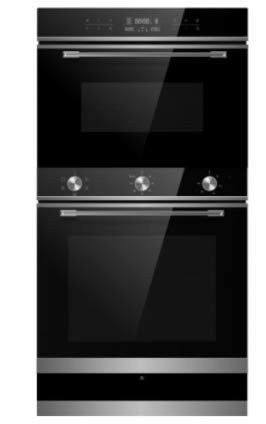Understanding Cookers and Hobs: A Comprehensive Guide
Cooking is an essential aspect of every day life, and the advancement of kitchen devices plays a substantial function in how effectively and successfully people prepare their meals. Amongst these appliances, cookers and hobs are two of the most vital instruments found in modern kitchens. This short article looks into the differences in between cookers and hobs, examines their numerous types, and offers insights on their functions, maintenance, and choice procedure.
What are Cookers and Hobs?
Cookers
Cookers are thorough kitchen devices created for cooking jobs, usually combining an oven and a hob. They come in different setups and types, accommodating varied cooking requirements and preferences.
Hobs
Hobs, on the other hand, are more concentrated devices primarily used for boiling, frying, and other stovetop cooking techniques. Hobs can be standalone units or an integrated part of bigger cookers.
| Feature | Cookers | Hobs |
|---|---|---|
| Function | Integrates oven and hob | Stovetop cooking just |
| Style | All-in-one system | Separate unit or integrated |
| Types | Electric, gas, double fuel | Gas, electric, induction |
| Installation | Enables more flexibility | Built into the countertop |
| Price Range | Typically higher | Varies extensively |
Kinds of Cookers
1. Electric Cookers
Electric cookers use electrical power as their primary power source. They often include an integrated oven and multiple cooking zones on the hob.
Advantages:
- Even heat circulation
- Offered in different styles (e.g., freestanding, integrated)
2. Gas Cookers
Gas cookers work on gas or liquefied petroleum gas (LPG). They use immediate heat control, making them a preferred amongst professional chefs.
Benefits:
- Instant heat changes
- More cost effective functional costs
3. Double Fuel Cookers
Dual fuel cookers combine the heat of gas with the performance of electric ovens. This setup permits the best of both worlds, providing control and constant outcomes.
Advantages:
- Flexible cooking alternatives
- Exact control over stovetop cooking and baking
4. Variety Cookers
Variety cookers are larger and more powerful than standard cookers, featuring numerous ovens and hobs for extensive cooking tasks.
Benefits:
- Ideal for large households or cooking for occasions
- Offers numerous cooking options in one home appliance
Kinds of Hobs
1. Gas Hobs
Gas hobs are preferred for their quick heating and strong flame, making them exceptional for burning and stir-frying.
Benefits:
- Instant heat and control
- Compatible with any kind of pots and pans
2. Electric Hobs
Electric hobs warm up utilizing electric coils or glass-ceramic surface areas, providing a modern-day look and effective cooking.
Advantages:
- Easier to clean up
- Consistent surface appropriate for numerous pots and pans
3. Induction Hobs
Induction hobs utilize magnetic fields to heat pots and pans directly, offering fast and energy-efficient cooking.
Benefits:
- Safe (cool surface area after getting rid of cookware)
- Energy-efficient and precise
4. Strong Plate Hobs
These conventional hobs utilize strong electric plates that warm up gradually.
Advantages:
- Rugged and long lasting
- Usually more budget-friendly than other types
Key Features to Consider
When picking a cooker or hob, numerous features ought to be taken into consideration:
- Size and Space: Consider the size of your kitchen and the amount of office needed.
- Cooking Style: Choose based upon choice-- gas for control, induction for effectiveness, etc.
- Performance Ratings: Look for energy-efficient models to reduce energy bills.
- Alleviate of Cleaning: Smooth surfaces help with simple maintenance.
- Security Features: Automatic shutoff, flame failure devices, and child locks improve safety.
Upkeep Tips
Keeping cookers and hobs prolongs their lifespan and makes sure safe operations.
- Regular Cleaning: Wipe down surfaces after use to prevent accumulation.
- Inspect Seals: Check oven door seals frequently for wear and tear to keep efficiency.
- Service Regularly: Schedule professional servicing a minimum of as soon as a year.
- Appropriate Cookware: Use cookware appropriate for your hob type to prevent damage.
Often Asked Questions (FAQs)
What is the distinction between a cooker and a hob?
A cooker integrates an oven and hob in one unit, while a hob is typically a standalone home appliance for stovetop cooking.
Do I require a professional to install a gas cooker or hob?
Yes, expert setup is advised for gas home appliances to make sure security and compliance with regional guidelines.
Can I use any type of cookware on induction hobs?
Induction hobs need magnetic pots and pans. Best Oven And Hob or cast iron pots work best. Non-magnetic materials will not warm up.
Are electric cookers more energy-efficient than gas cookers?
While both have advantages, electric cookers tend to be more energy-efficient general, especially with modern-day, high-efficiency models.
How frequently should I clean my cooker or hob?
It is best to clean them after each usage and perform a thorough cleansing weekly to avoid accumulation and residue.
Understanding the differences, functions, types, and upkeep suggestions for cookers and hobs is vital for any home cook. By picking the right appliance matched to their culinary needs, users can boost their cooking experience, making meal preparation an effective and enjoyable chore. Whether deciding for the instant control of gas or the streamlined performance of induction, picking the appropriate cooker or hob can cause a notably improved kitchen experience.

